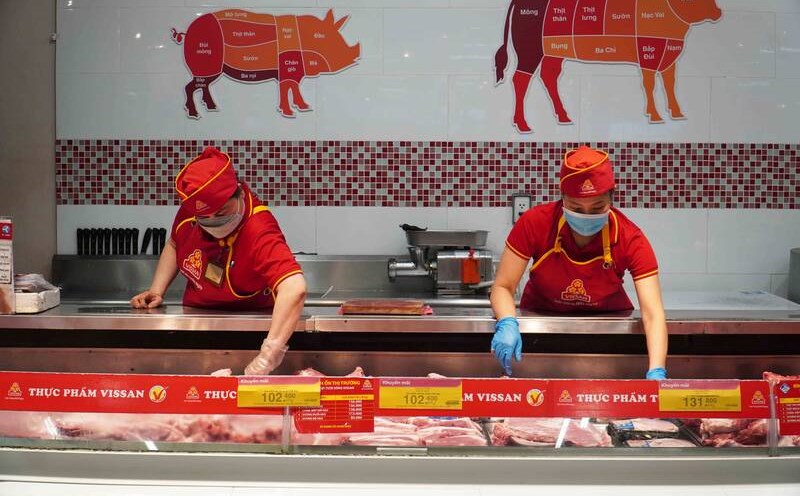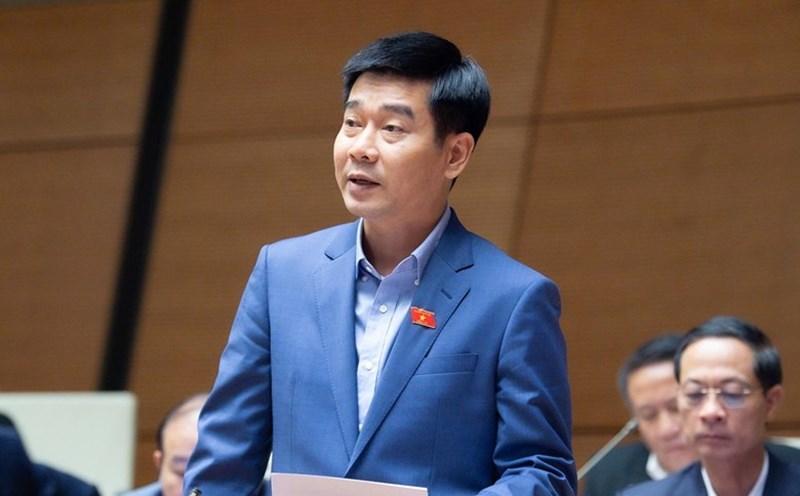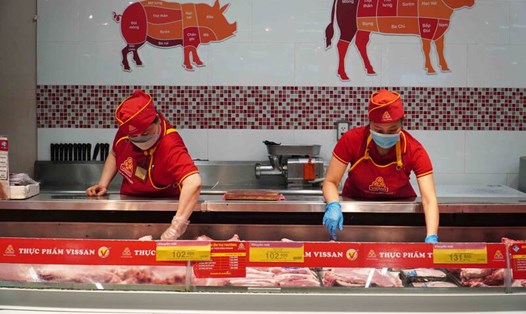The market is fluctuating, people are worried
In recent times, pork prices in Ho Chi Minh City have fluctuated regularly, especially after increases in input material prices and transportation costs. At traditional markets, meat prices can range from 10,000 - 20,000 VND/kg per day depending on the source of goods, making it difficult for both traders and consumers to handle.
Ms. Nguyen Thi Hong - a trader at Ba Chieu market shared: "The price of live pigs is constantly changing, one price in the morning, one price in the afternoon, it is difficult for sellers like us to predict profits. Sometimes I buy high but sell without daring to increase much because I am afraid that customers will turn my back". Not only sellers but consumers also hope the pork market will soon be more transparent. Mr. Tran Van Phuc (residing in Dien Hong ward) said: "Pork is an essential food every day, but the price at the market, supermarket or store is quite different".
Currently, Ho Chi Minh City's pork supply chain still has many intermediaries, high circulation costs, while the slaughter and distribution stages still lack linkages. The difficulty in controlling the origin, food safety and the situation of importing live pigs also make the market unstable, affecting budget revenue.
Exchange - a new step for a sustainable supply chain
Faced with many shortcomings in prices and supply chains, the Department of Industry and Trade of Ho Chi Minh City has just submitted to the People's Committee of Ho Chi Minh City a report on the results of research and proposed a plan to build a pork trading floor.
The formation of a trading floor will help overcome limitations in the supply chain such as high circulation costs, lack of price transparency, difficulty controlling the origin and quality of products. When put into operation, the exchange is expected to reduce intermediary costs, increase the efficiency of State management and contribute to stabilizing the market, limiting speculation and price manipulation. From December 1, 2025, Ho Chi Minh City will connect a number of large-scale entities in the pork supply chain to test a pilot model for small-scale transactions. After that, the units will evaluate, adjust and complete the model, and report the results to the Ho Chi Minh City People's Committee no later than March 31, 2026.
Mr. Nguyen Nguyen Phuong - Deputy Director of the Department of Industry and Trade of Ho Chi Minh City said that through the process of researching and building the Parshan exchange from 2019 to present, the establishment of the Pork Exchange in Ho Chi Minh City is an urgent need, helping to solve many existing problems in the current pork market.
According to Mr. Phuong, the exchange will contribute to building a sustainable supply chain, standardizing production processes - product quality, protecting people's health, meeting domestic consumption needs and aiming for export.
The early formation of a modern and transparent trading method is necessary to resolve shortcomings, orient the development of industrial livestock, control the origin, ensure the rights of all parties and increase budget revenue.











